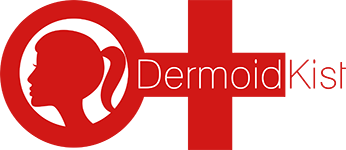This is a very difficult question. As you know, fertility of a woman depends on many factors, such as the sperm count of her husband, condition of her fallopian tubes and her egg quality etc. Dermoid cyst surgerydoes not negatively affect your fertility, as long as it is done in a proper way.
The damage to the ovarian reserve caused by laparoscopic or open surgery is limited, contrary to the damage caused by endometriomas. There are an extremely limited number of published research studies on the subject.
For a long time, Anti Mullerian hormone (AMH) has been known to be directly related to ovarian reserve. Especially after endometrioma (chocolate cysts) surgeries, AMH values drop, i.e., reserve is damaged. On the other hand, the stop of chocolate cysts was shown to reduce the AMH values in recent years.
However, currently there is only 2 publications in the literature, for the investigation of AMH values of dermoid cysts. The both study were published in 2015, one in Sweden and the other in Iran. The research done in Sweden compared the AMH values after removal of the dermoid cyst and endometriomas (1). And the research done in Iran investigated the AMH values after the removal of simple ovarian cysts (serous and mucinous) and dermoid cysts (2).
According to the Swedish study, the drop in AMH values in endometriomas (chocolate in the cysts) was much after the surgery. In other words, when we remove chocolate cysts, we more adversely affect the ovarian reserve. And in the Iranian study, AMH values got normalized to 62% at the end of the 3-month period after the removal of dermoid cysts. Researchers assert that the essential ones are the patient’s age and the diameter of the dermoid cyst. AMH values in the patients under 30 years of age diagnosed with dermoid cyst were not affected too much, whereas reduced values were observed in the patients over 30 years of age. Likewise, if the mature cystic teratoma is larger than 9 cm, removal of the cyst may create an adverse effect on the reserve.
However, these are are very new studies. In my opinion, more information needs to be accumulated and more research needs to be done to reach a definitive conclusion.
References
(1) Lind T, Hammarström M, Lampic C, Rodriguez-Wallberg K. Anti-Müllerian hormone reduction after ovarian cyst surgery is dependent on the histological cyst type and preoperative anti-Müllerian hormone levels. Acta Obstet Gynecol Scand. 2015; 94(2):183-190.
(2) Amooee S, Gharib M, Ravanfar P. Comparison of anti-mullerian hormone level in non-endometriotic benign ovarian cyst before and after laparoscopic cystectomy. Iran J Reprod Med. 2015; 13(3):149-154.
